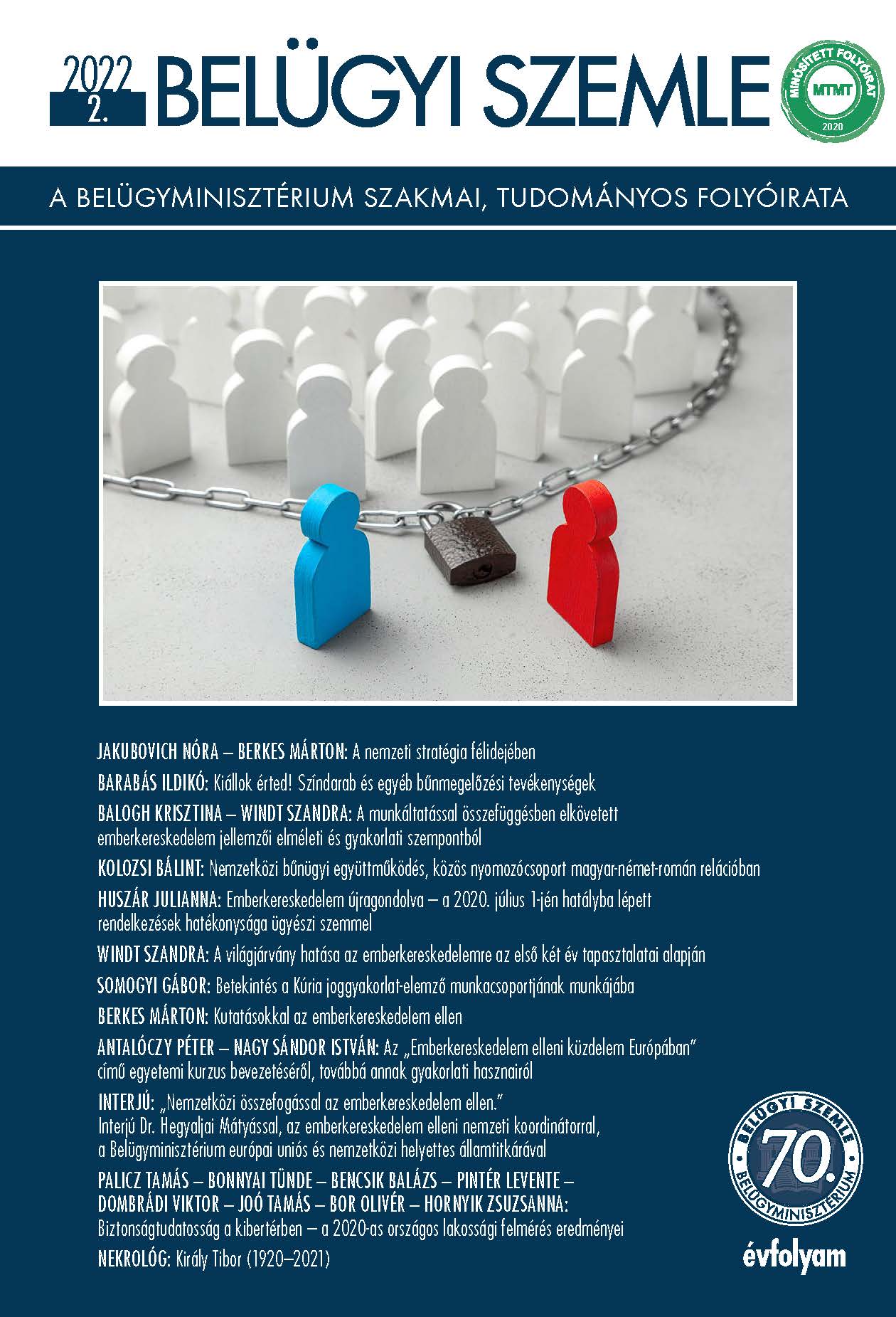Abstract
2020 was a landmark year in the fight against trafficking in human beings in Hungary: the anti-trafficking strategy came into force, along with important legislative changes. It was also the year when we had to learn how a tiny pathogen can change our lives overnight. Between March 2020 and the time of writing this article, we are experiencing the fourth wave of the coronavirus pandemic in Hungary, making it particularly difficult to assess its social and economic impact. We are far from seeing the end of the epidemic, each wave has had different effects, and it will take longer to explore and understand them.
Aim: This paper summarises the knowledge available in autumn 2021, specifically in the context of trafficking in human beings, stressing that these are partly hypotheses which will have to be confirmed or refuted in the years to come. By autumn 2021, there has been a significant increase in the number of cases of trafficking in human beings, but the question arises about the reasons for this. Is there, or could there be, a link with the pandemic, and what is the experience of practitioners and victims?
Methodology: The study was based on a review of the available international and national literature and in-depth interviews with victims of trafficking.
Findings: The increase in the number of cases since 2020 is the result of a process that has been underway in this area since 2018, but at different bodies (prosecution, police, child protection) at almost the same time, and the numbers do not yet reflect the impact of the pandemic. However, changes in methods are noticeable.
Value: A first synthesis of the consequences of the epidemic on trafficking in human beings is already available in the materials of international bodies, but a country specific approach, including a domestic one, has not yet been developed. Thanks to the Bolyai János Research Fellowship, further interviews and focus group discussions will be conducted to explore the impact of the pandemic on human trafficking.

